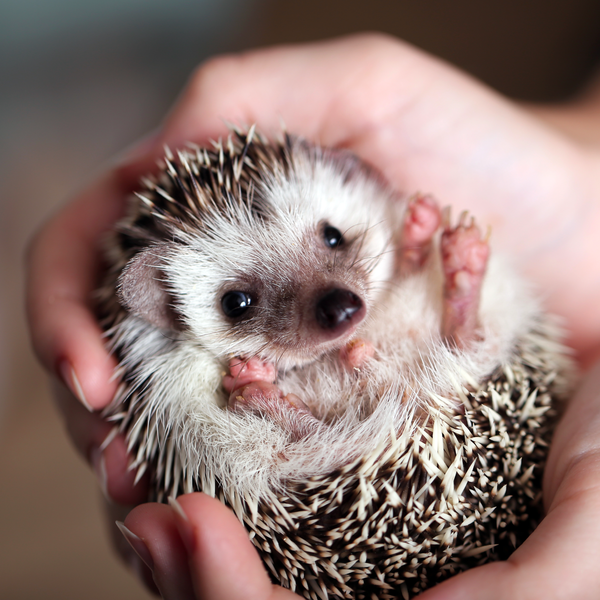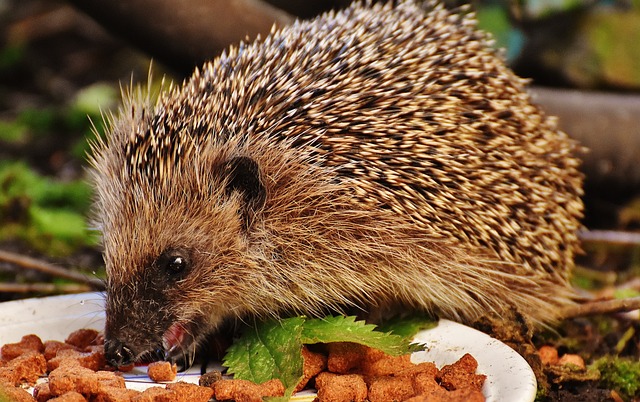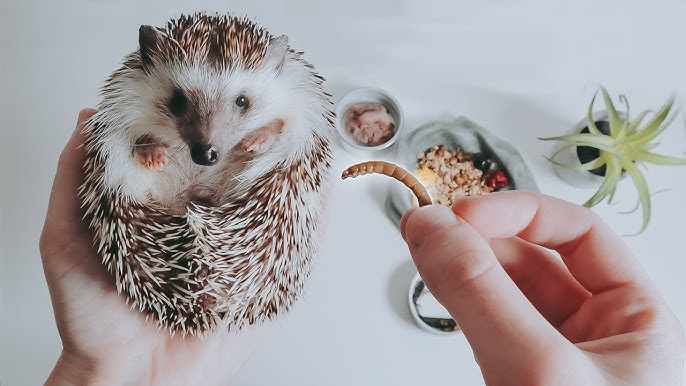So, you're thinking about bringing a pet hedgehog into your life? Or maybe you already have one and want to make sure you're giving it the best care possible. Either way, you're in the right place! Taking care of a hedgehog can be super rewarding, but like any pet, they need the right environment, diet, and attention to thrive. This guide will walk you through everything you need to know about caring for your pet hedgehog.

First things first: if you want your hedgehog to be happy and healthy, you need to create a safe and comfortable living space.
Hedgehogs are small creatures, but they still need enough space to roam around. Look for a cage that’s at least 24 inches long and 12 inches wide. A large hamster or guinea pig cage works well. Make sure it has a solid bottom—wire floors can hurt their feet.
For bedding, go for something soft and absorbent. Paper-based bedding (like Carefresh) or aspen wood shavings are great choices. Avoid cedar or pine wood shavings as they can be harmful to hedgehogs' respiratory systems.
Hedgehogs like it warm—ideally, between 72°F and 80°F (22°C - 27°C). If you live in a cooler climate, you might need a heat lamp or heat pad to keep them comfortable. Make sure their cage isn't in a drafty area or too close to a heat source.
Hedgehogs are shy and love to hide, so give them a cozy hideout. A small box or igloo works well. You can line it with soft bedding to make it extra comfy.
Hedgehogs are fascinating creatures, widely loved for their prickly exterior and adorable faces. If you're thinking about getting a hedgehog as a pet or simply curious about their eating habits, you're probably asking, "What do hedgehogs eat?" Well, you're in the right place. This detailed guide will cover everything from their natural diet to their feeding behavior, and offer tips on how to care for them in captivity. So, let’s dive in and learn more about hedgehogs and their fascinating eating habits.

In the wild, hedgehogs are insectivores, meaning their primary diet consists of insects and other small invertebrates. Their natural diet includes a wide variety of small animals, which they hunt for protein and nutrients. So, what exactly do wild hedgehogs eat?
Wild hedgehogs are expert foragers and are known to hunt for insects such as:
Beetles: A favorite among hedgehogs, beetles are high in protein, which is essential for their health.
Worms: Earthworms make up a large part of their diet, providing essential nutrients.
Slugs and Snails: Hedgehogs are particularly fond of slugs and snails, which they easily find in damp environments.
Caterpillars: Another easy-to-catch snack, caterpillars are commonly consumed by hedgehogs in their natural habitat.
Ants and other small bugs: Hedgehogs can hunt down ants, termites, and other small insects.
While insects are their main food source, hedgehogs may occasionally eat small rodents such as mice or voles. This, however, is relatively rare compared to their usual insect-heavy diet. Hedgehogs have a keen sense of smell, which helps them detect small prey in their environment.
Hedgehogs are mostly carnivorous, but they do sometimes nibble on fruits and vegetables. In the wild, they might eat berries, apples, or fallen fruits from trees. However, fruits and vegetables should not be a major part of their diet, as they don't provide the necessary proteins and fats that hedgehogs require.
If you're thinking of adopting a hedgehog as a pet, it's important to know what to feed them. While pet hedgehogs may have different dietary needs than their wild counterparts, their food still needs to mimic the nutrients found in their natural diet.
Main Diet: High-Protein Foods
The base of your hedgehog's diet should be a high-quality hedgehog food or cat food that’s rich in protein. Look for foods with about 30-40% protein and low fat content. Pet stores usually carry special hedgehog food, but high-protein cat kibble (without fillers like corn or soy) is also a good option.
Insects
Hedgehogs love insects! You can give them mealworms, crickets, and waxworms as a treat. Make sure the insects are appropriately sized to avoid choking hazards. If you're not sure, check with your local pet store for suggestions.
Many pet stores offer specialized hedgehog food that is designed to meet the dietary needs of these small animals. These foods typically contain a mix of protein (usually from insects), fat, and fiber, which is essential for a healthy hedgehog diet.
You can also supplement your hedgehog’s diet with live insects such as mealworms, crickets, and waxworms. These insects provide a high level of protein and are a treat that hedgehogs love.
Mealworms: Often available in pet stores, mealworms are high in protein but should be fed in moderation.
Crickets: A great natural food for hedgehogs, crickets are rich in nutrients and easy to find.
Dubia roaches: These are another excellent source of protein for hedgehogs, though they may not be as easily available in some regions.
While not a major part of their diet, fruits and vegetables can be offered to pet hedgehogs occasionally. Safe options include:
Apple slices (without seeds)
Blueberries
Cucumber
Carrots
Peas
Remember, fruits should be offered in moderation as too much sugar can be harmful to hedgehogs.
Sometimes, it’s necessary to supplement a hedgehog’s diet with high-protein cat food. Choose a high-quality cat food that is low in carbohydrates but high in protein, and avoid those with fillers like corn or soy. These will ensure your pet is getting the right nutrition.

Hedgehogs have very specific feeding habits. They are solitary, nocturnal creatures, which means they feed primarily at night. Their hunting and foraging habits are influenced by their environment and natural instincts.
Hedgehogs are nocturnal by nature, meaning they do most of their hunting during the night. This is when they’re most active and are out searching for food. As they hunt, they rely on their excellent sense of smell to locate insects, worms, and small prey.
In the wild, hedgehogs are known to forage over large areas, using their keen sense of smell to track down prey. This can sometimes lead them to travel several kilometers each night in search of food. Hedgehogs are also known for their ability to forage through underbrush, fallen leaves, and debris to find hidden insects and worms.
Pet hedgehogs, however, don't need to travel such long distances for food. As pets, they’re typically fed a set amount of food each day, usually in the evening when they are most active. It's important to monitor your hedgehog’s feeding habits to ensure they aren’t overeating or becoming overweight.
Maintaining a healthy diet for your hedgehog is crucial for their overall health. But diet alone isn’t enough. Regular health checks are essential to ensure your hedgehog is thriving.
Just like any pet, hedgehogs need regular check-ups from a vet to ensure they’re healthy. A vet can check for common health issues such as obesity, skin infections, and parasites. If your hedgehog is showing signs of illness (like lethargy, loss of appetite, or weight loss), you should take them to the vet immediately.
Some health problems in hedgehogs are diet-related, such as obesity from overfeeding or feeding the wrong types of foods. To avoid such issues:
Stick to a balanced, insect-rich diet.
Monitor the weight and overall health of your hedgehog regularly.
Provide plenty of water and avoid sugary treats that can lead to obesity or diabetes.
In the wild, hedgehogs are opportunistic feeders, meaning they eat whatever is available to them. As mentioned earlier, they primarily eat insects, but they may also hunt small vertebrates and scavenger foods.
Hedgehogs are particularly fond of slugs and snails, which are abundant in their natural habitats. These slimy creatures provide a great source of protein and are easy for hedgehogs to find in moist, dark environments.
While rare, hedgehogs will sometimes hunt small mammals, such as mice or voles. They have sharp teeth and strong jaws capable of catching and eating small animals.
Hedgehogs have also been known to eat birds' eggs, especially during the nesting season when eggs are easy to find in nests on the ground.
While hedgehogs are skilled at foraging and defending themselves with their sharp spines, they do have natural predators. Some animals that prey on hedgehogs include:
In order to survive, hedgehogs must rely on their ability to curl into a ball, using their sharp spines as protection from predators.
So, what do hedgehogs eat? Whether in the wild or as pets, hedgehogs thrive on a diet rich in insects, protein, and occasionally fruits and vegetables. As nocturnal hunters, they spend their nights foraging for food, whether it's slugs, snails, worms, or small mammals.
For pet owners, it’s important to replicate their natural diet as closely as possible, providing high-protein, insect-based foods. Regular health check-ups and proper feeding practices are key to maintaining a healthy and happy hedgehog.
Whether you’re a new hedgehog owner or a seasoned one, understanding their eating habits and how to provide for them properly will ensure that your hedgehog leads a long, healthy life.
Hedgehogs are curious little creatures, and they love to explore! While they are naturally nocturnal, that doesn't mean they don’t need a little exercise during the day (or at night). Here are some ways to keep your hedgehog entertained and active.
A solid surface wheel is a must-have for your hedgehog. Make sure it’s large enough (at least 12 inches in diameter) so they can run comfortably. Avoid wire wheels because their little feet can get caught.
Although hedgehogs aren’t known for playing with toys in the traditional sense, they love to explore. You can add tunnels, balls, or safe objects for them to investigate. Just make sure everything is hedgehog-safe and doesn’t have small parts they could swallow.
Hedgehogs need a safe space to roam. You can let them out of their cage, but make sure the room is hedgehog-proofed. Get rid of any small items they might chew on or get into, and make sure the floor is clean and free of hazards.
Keeping your hedgehog clean is super important for their health. Here's how to make sure they stay fresh.
Clean your hedgehog's cage weekly by removing old bedding and replacing it with fresh bedding. Wash the food and water bowls regularly to prevent bacteria buildup.
Hedgehogs don’t need regular baths, but if they get too dirty or have a sticky substance on them, you can bathe them. Use warm water (not hot!) and a mild pet shampoo. Avoid submerging them in water—just a gentle wipe-down will usually do the trick.
Hedgehogs have sharp nails that can get pretty long if not trimmed regularly. You'll need to trim their nails about once a month. If you're not comfortable doing this yourself, ask a vet to help you.
Just like any pet, hedgehogs need regular health checkups to stay in tip-top shape. Here's what to keep an eye on:
Obesity is a common issue in pet hedgehogs, especially if they're overfed or not getting enough exercise. Keep track of your hedgehog's weight and make sure they’re eating a balanced diet. If you're unsure, consult your vet for advice on portion sizes.
Hedgehogs can sometimes get mites or worms, so be vigilant for signs of itching, hair loss, or weight loss. If you notice any of these symptoms, take your hedgehog to the vet for a checkup.
If your hedgehog is acting lethargic, not eating, or has diarrhea, it could be a sign of illness. Hedgehogs are good at hiding their symptoms, so any change in behavior should be checked by a vet.
Hedgehogs can be a bit tricky to read, especially when they’re new to your home. Here’s how to understand some common hedgehog behaviors:
When a hedgehog feels threatened or scared, it will roll up into a ball with its spines facing outward. This is a natural defense mechanism. Give your hedgehog some time to relax and get used to its surroundings.
If you’re breeding hedgehogs, you'll need to know how to care for their babies, called hoglets. Hoglets are born blind and helpless, so they need extra care, warmth, and nursing from their mother.
Hedgehogs might make purring sounds when they’re happy or content, and a hissing noise when they feel threatened. The more you get to know your pet, the easier it will be to read its body language and vocalizations.
Caring for a pet hedgehog is a fun and rewarding experience. As long as you give them a safe, comfortable home, feed them a nutritious diet, keep them active, and provide regular health checkups, you’ll have a happy, healthy hedgehog on your hands.
Just remember, each hedgehog is unique, so it may take a little time to figure out exactly what your pet needs. But with patience and love, your hedgehog will thrive in its new home. Happy hedgehog parenting!
animal tags: hedgehogs
We created this article in conjunction with AI technology, then made sure it was fact-checked and edited by a Animals Top editor.